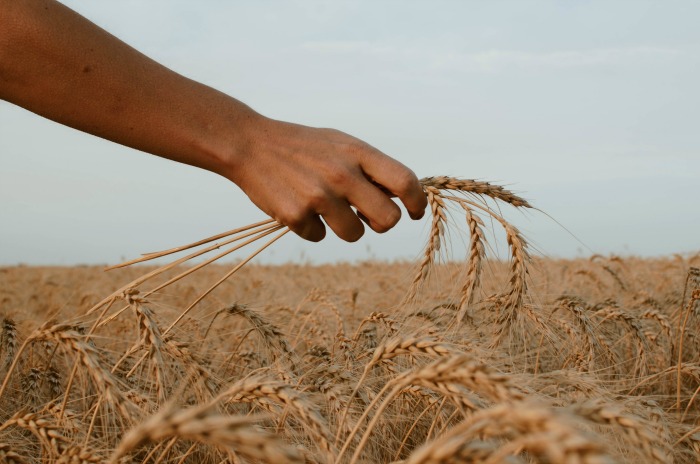What We’re All Forgetting About the Wheat and Tares Parable
“I guess this is the wheat being separated from the tares.”
“This is a sifting moment in the Church.”
Comments like these always come across as a premature pat on the back. It’s all good because I’m a part of the wheat. We are the wheat. Not only that, but they also imply that those who are not in total alignment with whatever’s being discussed are dreaded tares. This always makes me wonder how recently these people have read the account.
Speaking of, let’s actually read through the parable (Matthew 13:24-30):
Another parable put he forth unto them, saying, The kingdom of heaven is likened unto a man which sowed good seed in his field:
But while men slept, his enemy came and sowed tares among the wheat, and went his way.
But when the blade was sprung up, and brought forth fruit, then appeared the tares also.
So the servants of the householder came and said unto him, Sir, didst not thou sow good seed in thy field? from whence then hath it tares?
He said unto them, An enemy hath done this. The servants said unto him, Wilt thou then that we go and gather them up?
But he said, Nay; lest while ye gather up the tares, ye root up also the wheat with them.
Let both grow together until the harvest: and in the time of harvest I will say to the reapers, Gather ye together first the tares, and bind them in bundles to burn them: but gather the wheat into my barn.
What are we missing in all of this?
Sometimes, we get so caught up in “wheat vs. tares” and “Are you on the right side?” that we forget an equally important message in this parable: “let them grow together until the harvest.”
When some over-eager servants ask the householder if they should go rip out the tares for him, he tells them no. Why? Because they are indistinguishable until it comes time to harvest. And uprooting the tares right now would mean accidentally uprooting some wheat as well.
Later in the chapter, at the request of his disciples, the Savior explains the meaning of the parable, which is essentially an explanation of what will happen at the “end of this world” (Matthew 13:36-43). I find no problem with talking about the Second Coming and what will happen to the righteous and wicked. But should we, as imperfect people, be making subtle remarks that seemingly place people into categories already? Probably not. Because things aren’t quite over yet. And when the “harvest” does come, we may find ourselves surprised.
We do not know each other’s hearts, which is why we are told to “judge not, that ye be not judged” (Matthew 7:1). However, a Joseph Smith Translation of this verse reveals a caveat: “but judge righteous judgment.”
What is “righteous” judgment?
 Personally, righteous judgment was always a vague concept for me while growing up in the Church. I had a hard time understanding exactly what it entailed. Because its definition can sometimes be difficult to definitively pin down, some use “righteous judgment” as a broad justification and slippery slope for their behavior towards others.
Personally, righteous judgment was always a vague concept for me while growing up in the Church. I had a hard time understanding exactly what it entailed. Because its definition can sometimes be difficult to definitively pin down, some use “righteous judgment” as a broad justification and slippery slope for their behavior towards others.
On the “Judging Others” topics page, which is also the True to the Faith “Judging Others” section, we are told that judgment “requires great care.” It’s true that we will need to judge people and situations throughout our lives (“choosing friends, voting for government leaders, and choosing a spouse”). But we should approach this kind of judgment with “care and compassion.” In addition, we should take careful consideration of the person’s situation and make sure we sufficiently know the important facts.
Is the situation or person connected (or potentially connected) to you or your family’s safety, health, and well-being? Is this a big life decision involving other people? If not, consider erring on the side of caution since, after all, we have been warned that the measures we use to judge others will be used on ourselves (3 Nephi 14:2-5).
“We too often justify…”
 It can be hard to examine our own behavior and determine if something needs to change. It’s way easier to see how other people need to change and believe our own actions are completely acceptable. Elder Dieter F. Uchtdorf addresses this misguided mindset more eloquently than I ever could:
It can be hard to examine our own behavior and determine if something needs to change. It’s way easier to see how other people need to change and believe our own actions are completely acceptable. Elder Dieter F. Uchtdorf addresses this misguided mindset more eloquently than I ever could:
But when it comes to our own prejudices and grievances, we too often justify our anger as righteous and our judgment as reliable and only appropriate. Though we cannot look into another’s heart, we assume that we know a bad motive or even a bad person when we see one. We make exceptions when it comes to our own bitterness because we feel that, in our case, we have all the information we need to hold someone else in contempt.
Notice the words “too often.” Although the scriptures instruct us to judge others righteously, we probably don’t need to do it as often as we think we do.
Most people are trying their hardest, and we should give each other the benefit of the doubt. Our Heavenly Parents and the Savior are cheering us on and constantly extending a helping hand. They want to gather as much wheat as they possibly can at the harvest.
I’ll leave you with this beautiful quote from Elder Bruce C. Hafen: “We often sing ‘Who’s on the Lord’s side? Who?’ Let us also sing ‘Be still, my soul: The Lord is on thy side.'”


